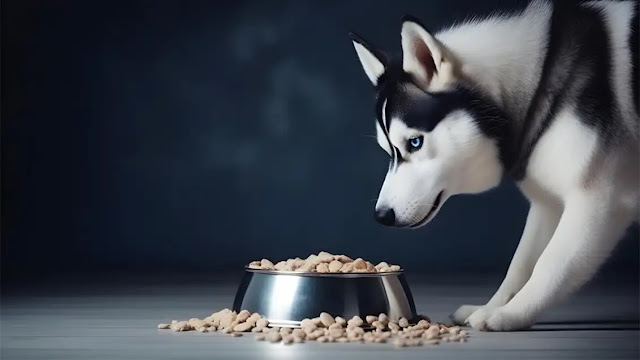best way to put weight on a dog
Dog weight gain tips
Putting weight on a dog can be a challenge, especially if you have a picky eater or a dog with a high metabolism. However, it is important to ensure that your furry friend maintains a healthy weight to prevent any potential health issues. In this article, we will discuss some effective tips to help your dog gain weight in a healthy manner.
Healthy weight gain for dogs
Before we dive into the tips, it is essential to understand what constitutes healthy weight gain for dogs. Just like humans, dogs need a balanced diet and exercise to maintain a healthy weight. The ideal weight gain for dogs should primarily come from an increase in muscle mass rather than fat. Engaging in regular physical activities along with a proper diet will help ensure that your dog gains weight in a healthy and sustainable way.
Building muscle in dogs
In order to help your dog gain weight, it is important to focus on building muscle mass. This not only adds weight but also improves overall strength and vitality. Here are some tips to help your dog build muscle:
1. High-quality protein
Protein is the building block of muscles, so it is important to ensure that your dog’s diet includes adequate amounts of high-quality protein. Look for dog food that lists meat as the main ingredient and avoid fillers or by-products. Additionally, consider adding lean meats such as chicken, turkey, or beef to your dog’s regular meals. However, make sure to consult with your veterinarian before making any changes to your dog’s diet.
2. Regular exercise
In order to build muscle mass, regular exercise is essential. Engage your dog in activities that promote strength and stamina, such as walking, jogging, or playing fetch. Gradually increase the duration and intensity of the exercise to challenge your dog’s muscles. Additionally, consider incorporating activities that target specific muscle groups, such as agility training or swimming.
3. Slow and steady weight gain
While it is important to help your dog gain weight, it is equally important to do it in a slow and steady manner. Rapid weight gain can put strain on your dog’s joints and lead to other health issues. Aim for a gradual weight gain of 1-2% of their body weight per week. Monitor your dog’s progress and consult with your veterinarian to ensure that they are gaining weight at a healthy rate.
4. Supplement with healthy fats
Incorporating healthy fats into your dog’s diet can help promote weight gain and provide additional energy. Consider adding foods such as salmon, sardines, or flaxseed oil to your dog’s meals. However, it is important to remember that fats should be added in moderation and balanced with other nutrients.
5. Frequent meals
Instead of feeding your dog one or two large meals, consider dividing their daily food portion into smaller, frequent meals. This helps increase their calorie intake without overwhelming their digestive system. Offering multiple meals throughout the day also prevents your dog from going long periods without food, ensuring a steady supply of nutrients.
6. Regular veterinary check-ups
Regular veterinary check-ups are crucial to monitor your dog’s overall health and weight gain progress. Your veterinarian can provide personalized advice and make necessary adjustments to your dog’s diet or exercise routine based on their specific needs. They can also identify any underlying health issues that may be hindering weight gain and recommend appropriate treatment.
Conclusion
Helping your dog gain weight in a healthy manner requires a combination of a balanced diet, regular exercise, and close monitoring. Building muscle mass should be the main focus, rather than simply adding excess fat. Remember to consult with your veterinarian before making any significant changes to your dog’s diet or exercise routine. With the right approach and care, you can ensure that your beloved furry friend achieves and maintains a healthy weight.














